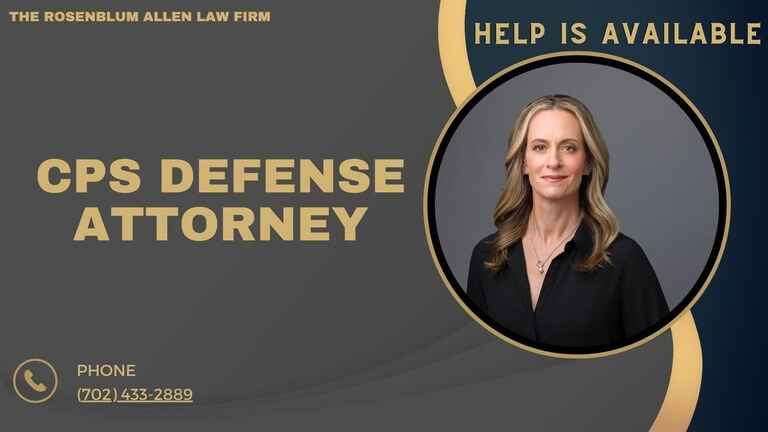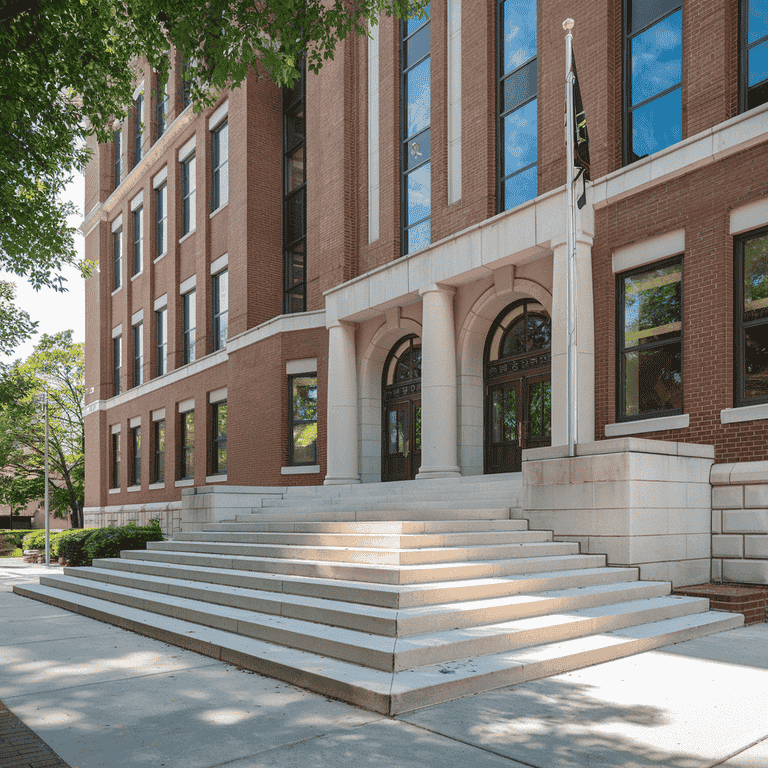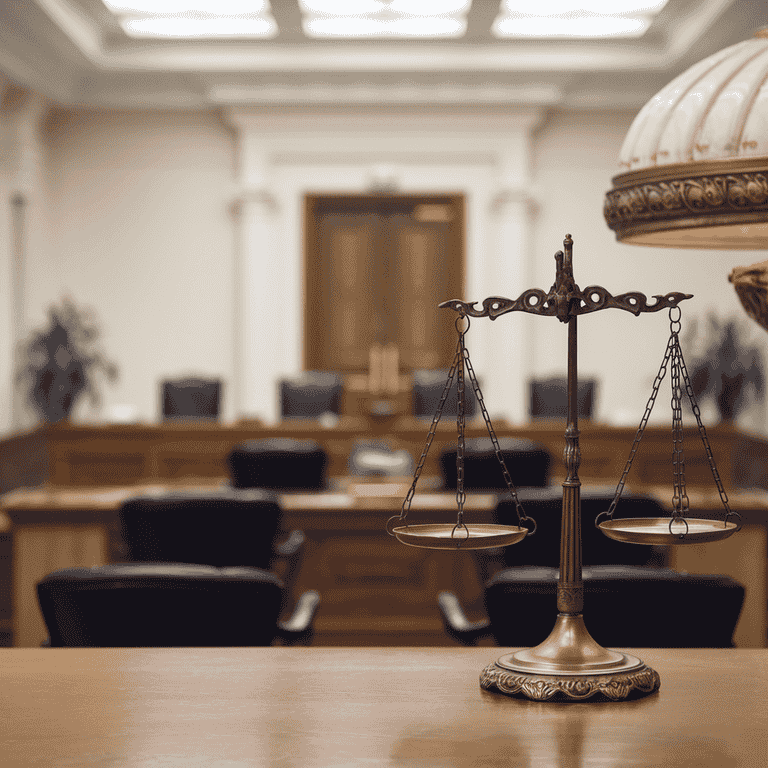Understanding CPS and the Role of a CPS Defense Attorney
What is CPS?
Overview of Child Protective Services
Child Protective Services (CPS) is a governmental agency responsible for ensuring the safety and well-being of children. Established to protect minors from abuse and neglect, CPS operates under state laws and regulations. The agency intervenes in situations where children may be at risk, conducting investigations into allegations of maltreatment.
CPS aims to:
- Protect children from harm
- Support families in crisis
- Promote child welfare through preventive measures

Responsibilities and Objectives of CPS
CPS has several key responsibilities, including:
- Investigating reports of child abuse or neglect
- Providing services to families in need
- Facilitating foster care placements when necessary
- Collaborating with law enforcement and other agencies
The overarching objective is to ensure the safety of children while also striving to keep families intact whenever possible.
What Does a CPS Defense Attorney Do?
Legal Representation in CPS Cases
A CPS defense attorney specializes in defending parents or guardians involved in CPS investigations. They provide legal representation throughout the entire process, from the initial investigation to court hearings. Their primary goal is to protect the rights of their clients and advocate for a fair outcome.
Navigating Child Welfare Investigations
CPS investigations can be overwhelming and intimidating. A CPS defense attorney guides clients through each step of the process, ensuring they understand their rights and obligations. This includes helping clients prepare for interviews, gather necessary documentation, and respond appropriately to allegations.
Advocacy for Parental Rights
One of the key roles of a CPS defense attorney is to advocate for parental rights. They work diligently to ensure that parents have a voice in the proceedings. This advocacy is vital in cases where parents may face false allegations or where there is a dispute regarding the best interests of the child.
Reasons to Hire a CPS Defense Attorney
Protecting Your Parental Rights
Understanding Your Rights in CPS Cases
Parents have specific rights when involved in CPS investigations. These rights include:
- The right to be informed of allegations against them
- The right to an attorney
- The right to participate in hearings and decisions
Understanding these rights is essential in navigating the intricacies of the system.
Importance of Legal Advocacy
Having a legal advocate on your side can make a significant difference in the outcome of a CPS case. An attorney can help:
- Ensure your rights are protected
- Provide guidance on how to interact with CPS
- Develop a strong defense strategy
Navigating Complex Legal Proceedings
Overview of the Legal Process Involved with CPS
CPS cases can involve various legal proceedings, including:
- Initial investigations
- Family court hearings
- Possible appeals
Each of these steps requires a clear understanding of the law and the ability to navigate the court system effectively.
Challenges in Representing Yourself
Representing yourself in a CPS case can be risky. Common challenges include:
- Lack of knowledge about legal procedures
- Emotional stress and confusion
- Difficulty understanding legal terminology
A CPS defense attorney can alleviate these challenges by providing the expertise needed to handle the complexities of the case.
Addressing Allegations of Abuse or Neglect
Common Allegations in CPS Cases
CPS investigations often arise from allegations such as:
- Physical abuse
- Emotional abuse
- Neglect
- Substance abuse
Each allegation can carry serious consequences, making a strong defense essential.
Strategies for Defense Against False Allegations
False allegations can be devastating. A CPS defense attorney can implement various strategies to defend against these claims, including:
- Gathering evidence to refute allegations
- Interviewing witnesses who can support your case
- Presenting a compelling narrative in court
These strategies are vital in ensuring that your side of the story is heard.

How to Choose the Right CPS Defense Attorney
Key Qualities to Look For
Experience in Family Law and CPS Cases
When selecting a CPS defense attorney, assess their experience in family law and specifically with CPS cases. An attorney familiar with the local system and laws will be better equipped to navigate your case effectively.
Strong Communication Skills
Effective communication is essential in legal matters. Look for an attorney who can clearly explain the process and keep you informed at every step. They should also be able to communicate effectively with CPS and other parties involved.
Questions to Ask During the Consultation
Assessing the Attorney’s Approach and Strategy
During the initial consultation, ask the attorney about their approach to handling CPS cases. Important questions include:
- What is your experience with cases like mine?
- What strategies do you recommend for my situation?
- How do you plan to keep me informed throughout the process?
Understanding Fees and Payment Structures
It’s essential to understand the financial aspect of hiring a CPS defense attorney. Ask about:
- Fee structures (hourly rates vs. flat fees)
- Payment plans or options available
- Any potential additional costs associated with the case
Importance of Local Knowledge
Familiarity with Local CPS Procedures
Each state and locality may have different CPS procedures. A CPS defense attorney who knows the local laws and practices can better navigate the system and advocate for your rights.
Understanding Local Family Courts
An attorney familiar with local family courts can provide valuable insights into what to expect during hearings and how to effectively present your case. They often have established relationships with court personnel, which can benefit your case.
The CPS Case Process
Initial Investigation by CPS
What Triggers a CPS Investigation?
CPS investigations can be initiated for various reasons. These typically stem from reports or allegations that a child may be at risk. Common triggers include:
- Anonymous tips: Reports from neighbors, family members, or friends.
- Medical professionals: Concerns raised by doctors or teachers who observe signs of abuse or neglect.
- Law enforcement: Situations involving domestic violence or arrests related to substance abuse.
When CPS receives a report, they must act swiftly to ensure the child’s safety.
Steps Taken by CPS During the Investigation
Once an investigation is triggered, CPS follows a series of steps:
- Assessment of the report: CPS evaluates the information provided and determines whether an investigation is necessary.
- Home visits: Investigators may visit the child’s home to assess the living conditions and interview family members.
- Interviews: CPS interviews the child, parents, and any relevant witnesses. These discussions aim to gather as much information as possible.
- Collaboration: They may work with other professionals, such as teachers and doctors, to gain a comprehensive understanding of the situation.
The entire process can feel overwhelming, but having a CPS defense attorney can provide vital support.
The Role of the CPS Defense Attorney During the Investigation
Immediate Actions and Legal Counsel
From the moment you learn about a CPS investigation, it’s important to seek legal counsel. A CPS defense attorney can help you:
- Understand the process: They will explain what to expect during the investigation.
- Prepare for interviews: Your attorney can help you gather relevant documents and practice responses to questions.
- Communicate with CPS: Your attorney can act as a liaison, communicating with CPS on your behalf.
These actions can significantly reduce your stress and improve your chances of a favorable outcome.
Communicating with CPS on Your Behalf
Communication with CPS is essential. An attorney will help you navigate interactions with the agency, ensuring that your rights are protected. They can also help manage information to prevent misunderstandings or misinterpretations that may harm your case.
Court Hearings and Legal Proceedings
Types of Hearings in CPS Cases
If a CPS investigation leads to court involvement, there are several types of hearings you may encounter, including:
- Shelter hearings: These determine whether a child should be removed from the home for safety.
- Preliminary hearings: These assess the evidence against parents and decide if further action is necessary.
- Adjudicatory hearings: This is where the court determines whether the allegations are true.
- Dispositional hearings: If the court finds abuse or neglect, this hearing determines the next steps, which may include reunification efforts or foster care placements.
Each hearing serves a specific purpose and requires careful preparation.
The Role of the Attorney in Court
Your CPS defense attorney plays a vital role in court hearings. They will:
- Present your case: Your attorney will advocate for you, presenting evidence and arguments that support your position.
- Cross-examine witnesses: They can question CPS representatives and other witnesses to challenge the allegations.
- Negotiate outcomes: An experienced attorney can negotiate with the court to seek favorable terms for you and your family.
Their knowledge is invaluable in ensuring that your voice is heard in court.

Potential Outcomes in CPS Cases
Reunification with Children
Steps Toward Reunification
If your child has been removed from your home, the primary goal of CPS is often reunification. Steps to achieve this may include:
- Participating in counseling or parenting classes: CPS may require parents to complete certain programs to demonstrate their ability to provide a safe environment.
- Regular visits with the child: Keeping connections with your child is important, and CPS may arrange for supervised visitation.
- Collaborating with CPS: Being open and communicative with the agency can help build trust and demonstrate your commitment to reunification.
Working closely with your attorney throughout this process is essential.
Role of the CPS Defense Attorney in Reunification Efforts
Your attorney can advocate for your interests during reunification efforts. They will ensure that you are aware of any requirements set by CPS and help you meet those conditions. Additionally, they can negotiate with the agency to ensure that visits and communication with your child are conducted fairly.
Case Dismissal
Circumstances Leading to Case Dismissal
In some situations, CPS may find insufficient evidence to support allegations. If this occurs, the case may be dismissed. Circumstances that could lead to dismissal include:
- Lack of credible evidence.
- Evidence indicating that the allegations were unfounded or false.
- Successful completion of required programs or interventions.
A strong defense can often lead to case dismissal.
Legal Strategies for Achieving Dismissal
To achieve dismissal, your attorney may employ several legal strategies, such as:
- Collecting evidence: Gathering documents or testimony that refutes the allegations.
- Challenging the investigation: Highlighting procedural errors made by CPS during the investigation.
- Negotiating with CPS: Working to resolve the case without court intervention when appropriate.
An effective strategy can significantly influence the outcome.
Long-term Consequences of CPS Involvement
Impact on Parental Rights
CPS involvement can have long-term effects on parental rights. Depending on the severity of the case, parents may face:
- Temporary or permanent loss of custody.
- Restrictions on future parental rights.
- Ongoing monitoring by CPS.
Understanding these implications is vital for parents facing CPS cases.
Future Legal Implications
Involvement with CPS may also have future legal implications, including:
- Difficulty in gaining custody of other children.
- Challenges in future legal matters related to family law.
- Impact on employment opportunities, particularly in positions that require background checks.
Addressing these potential outcomes proactively is essential for protecting your future.

Resources for Parents Facing CPS Involvement
Support Groups and Advocacy Organizations
National and Local Resources
Parents facing CPS involvement can benefit from various resources, including:
- Support groups: Connecting with others who have faced similar challenges can provide emotional support and practical advice.
- Advocacy organizations: Many organizations offer resources and guidance specifically for families involved with CPS.
These resources can help you navigate the challenges of the process.
Importance of Community Support
Having a support system is essential during a CPS case. Friends, family, and community members can provide emotional support and understanding, helping you stay grounded during challenging times.
Educational Materials and Guides
Books and Articles on CPS Defense
There are numerous books and articles available that provide insights into CPS defense strategies. These materials can help parents better understand their rights and the process.
Online Resources for Parents
Websites dedicated to family law and CPS issues can offer valuable information. These resources often include:
- FAQs about CPS processes
- Legal advice articles
- Support contact information
Utilizing these materials can empower parents to make informed decisions throughout their cases.

Breaking It Down for You
Facing a Child Protective Services case can be one of the most challenging experiences a parent can encounter. It’s vital to have the right support and guidance throughout this process. Hiring a skilled CPS defense attorney can make a significant difference in the outcome of your case. They will advocate for your rights, help you understand the legal proceedings, and work tirelessly to protect your family.
Remember, you don’t have to navigate this journey alone. Building a strong support network and preparing adequately can empower you to face the challenges ahead. If you find yourself in this situation, seek out an experienced CPS defense attorney who understands the nuances of family law. They can help you develop a solid defense strategy, ensuring that your voice is heard and your family’s best interests are prioritized.
Taking proactive steps today can lead to a brighter tomorrow for you and your children.

Frequently Asked Questions
What should I do if CPS contacts me?
If CPS contacts you, remain calm. It’s essential to understand your rights. You can request that a lawyer be present during any interviews. Do not share information without legal advice, as it may impact your case.
How can a CPS defense attorney help me?
A CPS defense attorney can guide you through the complexities of the legal process. They will analyze your case, help gather evidence, and represent you in court. Their goal is to protect your parental rights and advocate for the best outcome for your family.
What are my rights when dealing with CPS?
You have the right to be informed of any allegations against you, the right to legal representation, and the right to have a fair hearing. It’s essential to know your rights to effectively navigate the process.
What types of cases do CPS attorneys handle?
CPS attorneys handle a variety of cases, including allegations of neglect, abuse, and substance abuse. They also assist with cases involving custody disputes and parental rights termination.
How can I find a reputable CPS defense attorney?
Look for an attorney with experience in family law and CPS cases. Seek recommendations from trusted sources, read online reviews, and schedule consultations to discuss your case and evaluate the attorney’s approach.
What happens during a CPS investigation?
During a CPS investigation, caseworkers will gather information, which may include interviews with you, your children, and other witnesses. They may also review documents and assess your living environment.
Can I appeal a CPS decision?
Yes, you can appeal a CPS decision. If you disagree with the findings or the actions taken by CPS, consult with your attorney to understand the process and your options for appeal.
What if I can’t afford a CPS defense attorney?
If you cannot afford an attorney, seek out legal aid organizations that specialize in family law. Many provide services on a sliding scale or even for free, depending on your financial situation.
How long does a CPS case take?
The duration of a CPS case varies based on factors such as the complexity of the case, the number of parties involved, and the actions taken by CPS. Some cases may resolve in a few months, while others can take longer.
What are the potential outcomes of a CPS case?
Outcomes can vary widely and may include the dismissal of allegations, temporary custody arrangements, or involvement in family services. In severe cases, parental rights may be terminated. An attorney can help you understand the potential outcomes based on your situation.

Offsite Resources for You
Here are some offsite resources for you:
Child Welfare Information Gateway
This site provides a wealth of information on child welfare topics, including child protective services and resources for families involved in CPS cases.American Bar Association (ABA)
The ABA offers resources on legal topics, including family law, children’s rights, and finding legal assistance.National Child Abuse Coalition
This organization focuses on child abuse prevention and provides information on advocacy and resources for affected families.National Center for Missing & Exploited Children (NCMEC)
NCMEC provides resources and support for missing and exploited children, including prevention programs and training.Childhelp
This organization offers resources for victims of child abuse, including a national hotline and information on prevention and intervention.The Children’s Defense Fund
This organization advocates for policies and programs to protect children and provide them with a safe and nurturing environment.

What's Next

Dear Reader,
Thank you for taking the time to explore these valuable resources related to child protective services. I hope you found the information helpful and insightful.
If you have any questions or need assistance navigating your situation, I invite you to schedule a free consultation with me. Please feel free to call my office at (702) 433-2889. I’m here to support you and guide you through this challenging time.
Warm regards,
Molly Rosenblum Allen, Esq.
The Rosenblum Allen Law Firm




